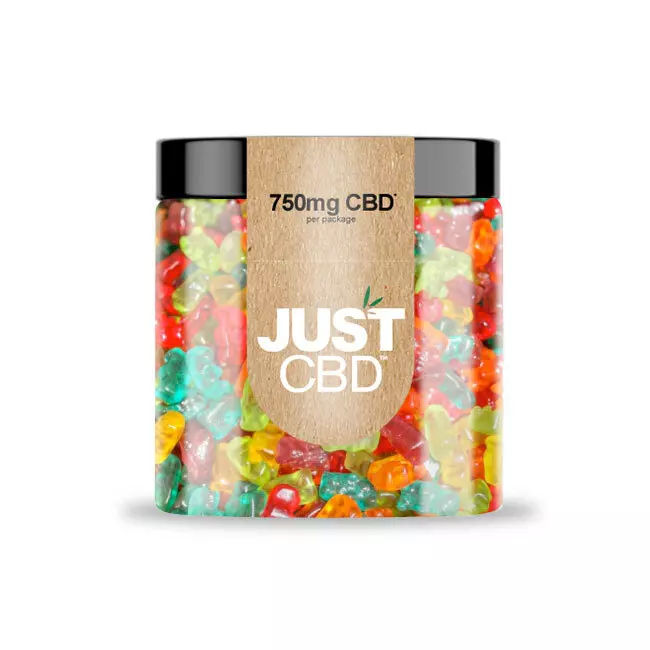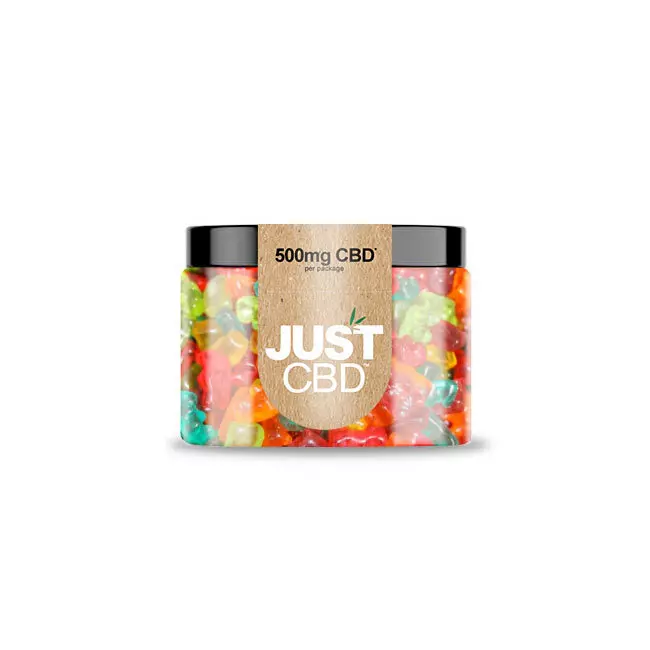Are CBD Gummies Effective For Reducing Inflammation?
Potential Benefits of CBD for Inflammation
CBD, a compound derived from hemp plants, has garnered significant attention for its potential therapeutic benefits, particularly in managing inflammation. Emerging research suggests that CBD may possess anti-inflammatory properties that could alleviate pain and discomfort associated with various inflammatory conditions.
Mechanisms of Action
Several mechanisms are believed to contribute to CBD’s potential anti-inflammatory effects. One key pathway involves the interaction of CBD with the endocannabinoid system (ECS). The ECS is a complex network of receptors and neurotransmitters that plays a crucial role in regulating various physiological processes, including inflammation. CBD is thought to modulate the activity of these receptors, thereby influencing the body’s inflammatory response.

Furthermore, CBD has demonstrated the ability to suppress the production of pro-inflammatory cytokines, which are signaling molecules that contribute to inflammation. By reducing cytokine levels, CBD may help dampen the inflammatory cascade and alleviate associated symptoms. Additionally, some studies suggest that CBD may inhibit the activity of enzymes involved in inflammation, such as COX-2 and lipoxygenase.
Scientific Evidence
While research is ongoing, preliminary evidence suggests that CBD may hold promise for reducing inflammation.
Some studies have shown that CBD can reduce markers of inflammation in animal models and in human cell cultures. For example, one study found that CBD reduced inflammation in rats with arthritis. Another study showed that CBD decreased the production of pro-inflammatory cytokines in human cells.
However, more research is needed to confirm these findings in humans and to determine the optimal dosage and duration of treatment for different inflammatory conditions.
Types of Inflammation CBD May Help With
CBD’s potential benefits for inflammation stem from its ability to interact with the endocannabinoid system (ECS), a complex network regulating various bodily processes, including inflammation. By modulating ECS activity, CBD may influence the body’s inflammatory response.
Additionally, CBD has been shown to suppress the production of pro-inflammatory cytokines, signaling molecules that drive inflammation. This suppression can help dampen the inflammatory cascade and alleviate associated discomfort.
CBD may also inhibit enzymes involved in inflammation, such as COX-2 and lipoxygenase, further contributing to its anti-inflammatory effects.
While research is ongoing, CBD has shown promise in reducing inflammation in animal models and human cell cultures. For example, studies have demonstrated CBD’s effectiveness in reducing inflammation in rats with arthritis and decreasing pro-inflammatory cytokine production in human cells.
Types of inflammation that CBD may potentially help with include:
- Arthritis
- Inflammatory bowel disease (IBD)
- Skin conditions like eczema and psoriasis
- Multiple sclerosis
Forms of CBD Gummies and Dosage Considerations
CBD gummies have emerged as a popular method of consuming cannabidiol, a compound known for its potential therapeutic properties. These chewy treats come in various flavors and potencies, making them a convenient option for individuals seeking to incorporate CBD into their wellness routine. Dosage considerations are crucial when using CBD gummies, as the appropriate amount can vary depending on factors such as body weight, individual metabolism, and the desired therapeutic effect.
CBD Concentrations in Gummies

CBD gummies come in a range of potencies, typically expressed as milligrams (mg) of CBD per gummy. Lower-potency gummies may contain 5-10 mg of CBD per serving, while higher-potency options can have up to 50 mg or more.
Determining the right dosage is essential for maximizing benefits and minimizing potential side effects. It’s generally recommended to start with a low dose (e.g., 5-10 mg) and gradually increase it as needed, monitoring how your body responds.
Recommended Dosage Guidelines
CBD gummies have become a popular way to consume CBD. These come in various flavors and potencies, making them a convenient option for incorporating CBD into daily life.
Recommended dosage guidelines are important because the appropriate amount of CBD can vary depending on several factors including:
- Body weight
- Individual metabolism
- The desired therapeutic effect
CBD gummies come in a variety of potencies, typically labeled in milligrams (mg) of CBD per gummy. Lower-potency gummies may contain 5-10 mg of CBD per serving, while higher-potency options can have up to 50 mg or more. Starting with a low dose, such as 5-10 mg, and gradually increasing it as needed is generally recommended. Monitoring how your body responds is crucial when determining the right dosage for you.
Individualized Dosage Needs
CBD gummies offer a convenient and tasty way to consume CBD. However, it’s important to understand that individual needs vary greatly when it comes to dosage. Factors such as body weight, metabolism, and desired effects all play a role in determining the optimal amount of CBD for each person.
Some individuals may find relief from symptoms with lower doses, while others may require higher doses to achieve their desired outcomes. It’s always best to start with a low dose and gradually increase it as needed, paying close attention to how your body responds.
Considerations Before Using CBD Gummies for Inflammation
CBD gummies have gained popularity as a convenient way to incorporate cannabidiol into daily life. While these treats offer a tasty and easy method of CBD consumption, several factors should be considered before incorporating them into your routine, particularly if you’re looking to manage inflammation.
Potential Side Effects and Interactions
Before using CBD gummies for inflammation, it’s crucial to consult with a healthcare professional. They can help assess your individual needs, consider any potential interactions with medications you’re currently taking, and determine an appropriate dosage.
Potential side effects of CBD gummies, though generally mild, can include changes in appetite, diarrhea, fatigue, and drowsiness. Some individuals may experience allergic reactions to certain ingredients in the gummies. It’s important to be aware of these potential side effects and seek medical attention if you experience any adverse reactions.
CBD can interact with certain medications, such as blood thinners and immunosuppressants. It’s essential to disclose your CBD use to your doctor to avoid potential drug interactions that could compromise the effectiveness of your medications or increase the risk of side effects.
Quality and Regulation of CBD Products
When considering CBD gummies for inflammation, several factors warrant attention. First, consult with a healthcare professional to determine if CBD is appropriate for you, considering any existing health conditions, medications you take, and potential interactions. They can guide you on dosage and potential risks.
Quality and regulation of CBD products are paramount. Look for gummies from reputable brands that provide third-party lab testing results. These results verify the product’s CBD content, absence of contaminants, and accuracy of labeling.
Consulting with a Healthcare Professional
Before using CBD gummies for inflammation, it’s crucial to consult with a healthcare professional. They can help assess your individual needs, consider any potential interactions with medications you’re currently taking, and determine an appropriate dosage.
Potential side effects of CBD gummies, though generally mild, can include changes in appetite, diarrhea, fatigue, and drowsiness. Some individuals may experience allergic reactions to certain ingredients in the gummies. It’s important to be aware of these potential side effects and seek medical attention if you experience any adverse reactions.
CBD can interact with certain medications, such as blood thinners and immunosuppressants. It’s essential to disclose your CBD use to your doctor to avoid potential drug interactions that could compromise the effectiveness of your medications or increase the risk of side effects.
Conclusion
While research on CBD for inflammation is promising, more human studies are needed to confirm its efficacy and determine optimal dosages. It’s crucial to consult with a healthcare professional before using CBD gummies or any other form of CBD to ensure they are safe and appropriate for your individual needs.
Explore Gummies at Just CBD UK
Explore cbd infused gummies at JustCBD
Dive into this detailed read
Check out the full feature
- Why Ghosting Is A Harmful Dating Trend - November 3, 2025
- What Is The Drink With THC In It? - November 2, 2025
- What Are The Best CBD Infused Gummies For Relaxation - October 31, 2025

